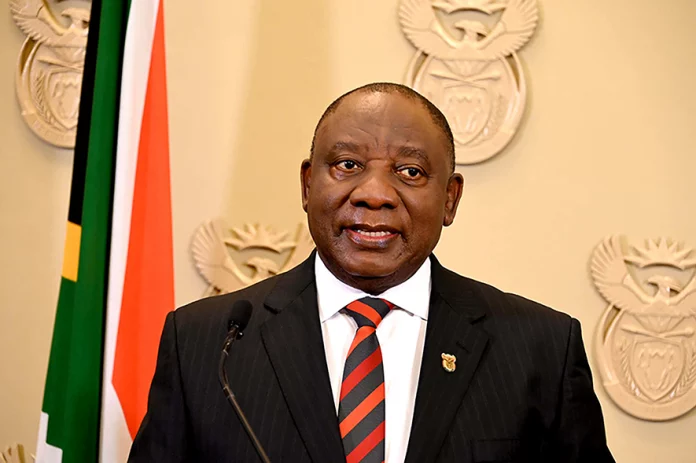President Cyril Ramaphosa has outlined the Country Investment Strategy (CIS) which he said is closed to finalisation, and is impressed about the impact it will have on stimulating the economy.
He was speaking at the 5th South Africa Investment Conference held at the Sandton Convention Centre this week.
The president said the CIS focus is to advance the country’s economic interest with strategic and oversight efforts driven from the Presidency.
“Investment in our economy is not just about the amounts you have seen on this stage over the years. When we expand the lens and take in the aggregate picture, we see some encouraging trends too,” Ramaphosa said.
“Following the devastating impact of the Covid-19 pandemic, total fixed investment in nominal terms increased from R756-billion in 2020 to R811-billion in 2021, and R933-billion in 2022.
“From historical data, we know that total investment in our economy over a five-year period comes in at roughly R4-trillion.”
He said that building on this baseline, the government will work towards a new target to turn around the country’s struggling economy.
“As I announced in the State of the Nation Address in February, we are now setting a new target to mobilise approximately R2-trillion in new investments over another five-year period, between now and 2028.
“The investments emanating from four South Africa Investment conferences held to date have stimulated industrial, technological, and institutional modernisation.
“These investments have supported the expansion of human capital and knowledge transfer and created more jobs and learning opportunities.
“With the achievement of our R1.2-trillion target today, we now cast our collective eyes to the horizon,” Ramaphosa said.
He also tapped into the crisis faced by the logistics sector, saying Transnet’s railway and port constraints are significantly affecting the mining, agriculture, forestry, automotive and manufacturing sectors.
“We are prioritising port and rail efficiencies as part of the structural reform process. Our new national rail policy provides for third-party access to the freight rail network, which will allow private rail operators onto the network to increase investment and improve efficiency.
“To facilitate third-party access, Transnet is establishing a separate infrastructure manager for the rail network.
“In the interim, Transnet is implementing a range of measures to arrest the decline in performance of the freight rail system, including to increase the availability of locomotives for key corridors.”
Ramaphosa added that Transnet is in the process of establishing private/public sector partnerships at the Durban and Ngqura container terminals to be concluded soon.
“We have agreed with key stakeholders to establish a national logistics crisis committee to drive the implementation of a comprehensive roadmap for the freight logistics sector.
“The private sector Resource Mobilisation Fund is providing support for the energy action plan, and we are greatly encouraged by indications from business that they are prepared to support government in our effort to fix the logistics system.”
For more business news from Sunday World, click here.
Follow @SundayWorldZA on Twitter and @sundayworldza on Instagram, or like our Facebook Page, Sunday World, by clicking here for the latest breaking news in South Africa.



